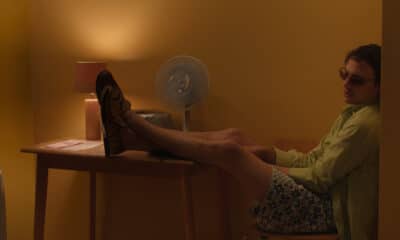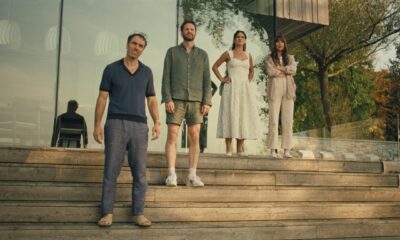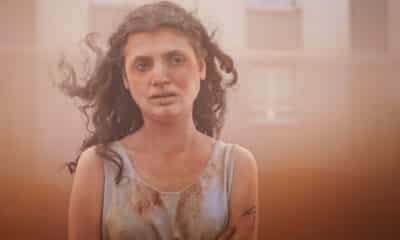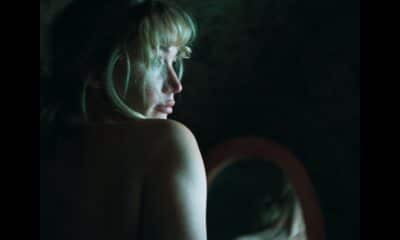Arrow Video FrightFest begins its first online edition this Thursday (27th August) and in the run-up we’ve had a series of interviews with some of the talent behind some of the movies playing. First up is our chat with writer and director, Tyler Savage, about his Los Angeles-set film, Blinders. The film follows Texan, Andy (Vincent Van Horn), as he relocates to Los Angeles after a bad break-up. On one of his first nights in the new city, he meets and hits it off with Sam (Christine Ko). After a night of getting to know one another, they get a ride-share together where they are picked up by Roger (Michael Lee Joplin) whom takes a shine to Andy. At first, Andy is pretty happy to have a new guy friend to hang out with but soon starts to distance himself from Roger, something Roger doesn’t take to kindly to and sets about trying to systematically ruin Andy’s life forever.
We caught up with Tyler to find a little bit more about his career before making Blinders, which included working as an assistant to Terrence Malick. We also had an in-depth discussion about the inspiration behind Blinders and about his future career as a dog trainer.
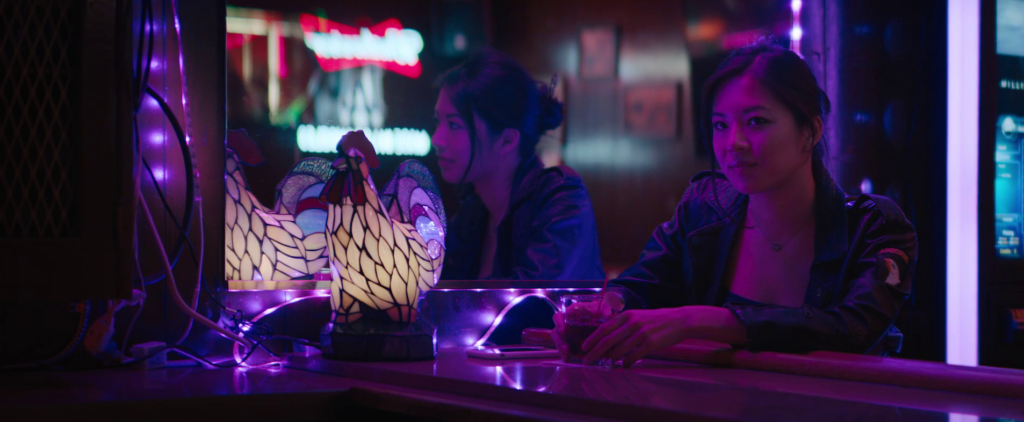
What made you want to be a filmmaker?
I’ve been pretty obsessed with film for most of my life. I grew up in the San Fernando Valley of Los Angeles and just was always around it. Not necessarily in a professional sense, but just obsessed with movies, sneaking into the multiplex and watching as many titles as I could before somebody would kick us out. I think that by seven or eight I was using Sony Handycams to make short films with my friends, which were usually just imitating whatever movie we loved. Whatever Martin Scorsese we could get our hands on, or whatever Tarantino title that we might be able get a copy from Blockbuster or something. I think that’s where it started. Then by the time I got to high school I was writing more and really focused on just storytelling in general. I’d written a copy of one-act plays and I think that that started to get me more confident with my writing. Then I went to New York University Tisch School of the Arts where I majored in Film Production and minored in Screenwriting. From there I basically came back to Los Angeles and worked as a story editor for Warner Bros. for about a year and a half / two years. Just part of that whole development process; seeing movies that took about ten years to actually get made as they came through this very bureaucratic process. I wasn’t a huge fan of that world and then I got an opportunity to start being a production assistant on a Terence Malick film. I had been as big fan of him my whole life, or at least since I was a teenager so I took that job and I ended up spending almost four and a half years working with him until finally I felt like it was time try and set out and start making my own stuff.
What did you learn from working with Terence Malick? I’m guessing it was like its own film school?
That’s what I always say; it was like the best Masters programme that I could have ever asked for. Obviously, any first hand experience is great, but I think a lot of what of what was great about it is it demystified film production for me. There was a lot of big name actors, and all the movies I shot with him were all shot by Emmanuel Lubezki, who is one of the greatest cinematographers of all time. It just demystified it to be part of the day-to-day and to see these things coming to life. So that was really fun. I mean he’s a tough guy to work for. He’s not an easy person to work for because he really is a pretty work-obsessed person. I didn’t take a single day off for months at a time. Everyday was obsessively working on something. Whether he was drafting something and he wanted me to be there so I could be transcribing pages from his typewriter as he was going, or we were in editorial and he wanted to do the 35th cut of this one scene and it had to be done on a Sunday afternoon. So there was always a huge workload, but what was fun about it is that he really has sort of a rebellious spirit and was never afraid to do his thing. He was never afraid to be, ‘I don’t care if people don’t understand what I’m trying to shoot here. Or if they don’t love my style, Or if they don’t quite understand what this line of dialogue means to their character.’ He just had this confidence about him that was really fascinating and educational to watch in terms of how he ran a set. That was probably the biggest takeaway from that experience.

Where did the idea for Blinders come from?
My writing partner, Dash Hawkins, and I were looking for another film that was a little more commercial than the first feature we had worked on together, Inheritance. It all just came from the fact that I had literally got a Lyft ride home to my home in Los Feliz from a guy who just seemed really unstable and strange. He was asking me a few too many personal questions, and then by the time I got out of the car I was just a little creeped out that this guy knew where I lived. I think from that conversation, Dash and I started talking and building out something. Talking about references we like, and you know, how to do something that had a bit of a streak of dark comedy in it; but I also love Film Noir so I think that was the idea, of someone coming to LA almost like the Film Noir detour. There’s so many movies that start with a misadventure of somebody getting away from somewhere. I’ve always liked that tradition in storytelling, so I wanted to do an update on that.
And this stuff does happen. My friend had a pizza delivery guy message her a couple of days later, asking her out. He wouldn’t have had her number without the delivery app. It’s really creepy.
Oh my God, completely! I think that’s what it was. We’re more vulnerable because of the technology that we’re using than we like to think. It’s like so your example, well that’s just Postmates, and it’s like yeah, but what do you know about that individual that just walked up the flight of the stairs and is now on the other side of your door? There’s something about that that is just inherently unsettling. People really can weaponise social media and the Internet these days.
The film follows Andy as he relocates to Los Angeles and highlights some of the problems he has with moving state. Both you and your co-writer, Dash Hawkins, are native Los Angelenos… how did you work to capture that essence of strange in a place that is home?
LA, I’ve always had – and Dash would probably say the same thing though maybe less so – a slightly conflicted relationship. When I came out of high school, I couldn’t wait to get the Hell out of there and go to New York. Then again I spent four or five years in Austin, and so when I came back to LA, it was sort of new to me because I’d been gone for seven or eight years. I think that helped, and something else we talked about early on was we talked about representing LA for all that it is. Not just highlighting the overly familiar or a single section of the city. A lot of it takes place on the East side of the five freeway, which is the Atwater Lincoln Heights area that goes into downtown. We intentionally put a lot of the movie in that part of town because it’s something that doesn’t get featured a lot. Then from the outsider coming into LA, something we wanted to highlight is just the crazy socioeconomic range that’s present in a city with 10 million plus people. You have some people living in a 5 million dollar mansion on the West Side, all the way to the dark alleys in downtown or something. So we were trying to figure out a way [of showing all of that]. Korea town’s in this movie, the East side’s in this movie, but we shot everywhere from really nice neighbourhoods in the Valley to pretty rundown places in South Central. LA’s so cool because it is multifaceted. I guess that’s a long winded way of saying we wanted to show all the colours of Los Angeles as much as we could.
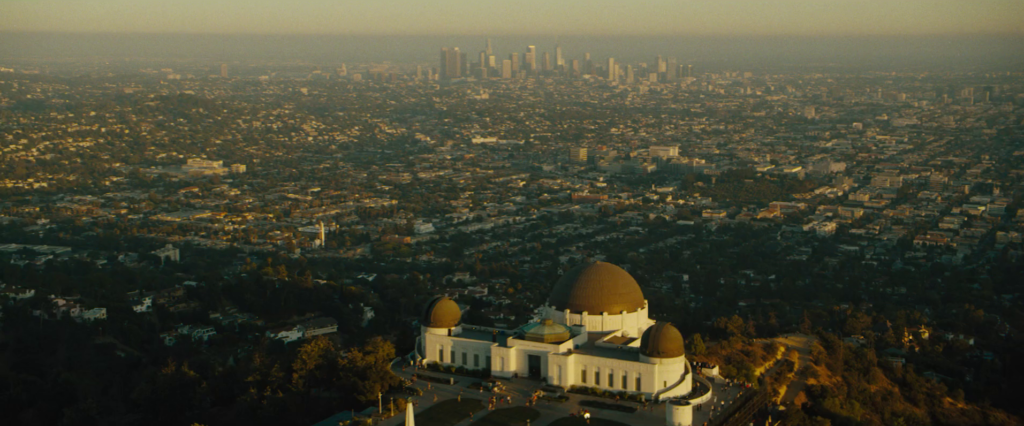
When did you realise that Vincent was Andy, and what did he bring to that role?
It’s interesting because I think a lot of the story I have to give credit to Vince and to Michael Lee Joplin. They are very dear friends of mine and they’ve known each other even longer than I’ve known either of them. They’ve done some shorts together. Michael does a lot of comedy, but Vince has always been somebody in things I’ve seen him in that is a great straight man. He’s a good avatar to be going through a crazy experience with because he’s relatable. Also with the characters of Andy and Vince – and I have laughed about this – because it’s not like I wanted to imply that there’s something negative about him personally, but this character of Andy has a flaw. He’s not a perfect guy. But part of the way the story operates is you really have to be rooting for him the whole time. I thought that Vince was a really good guy that gets you rooting for him regardless of what his behaviour is; there’s something inherently sympathetic about him. Then with Michael on the villain side, there’s something that in reality is very hyper present about Michael and somewhat unsettling to some people because he’s so in the moment constantly. I just wanted to take that dynamic. They almost operate in real life as brothers, where they know how to taunt and tease each other and get under each others skin. I knew that if we could figure out a way to capture that, it would be fun.
I did a really fun set, early on, of improvs with them. I was setting up these improv starters that were just driving pure awkwardness. I was like, ‘you’re picking up this guy at LAX, and you’re a ride share driver, and you’re going to drive him to his apartment, and you’re going to fall in love with him on the way.’ I started to understand how in the moment they could go after each other and make the other one uncomfortable. That was a really fun process.

Blinders also makes some great commentary on social media, technology, and how the two impact our public and private personas and relationships. What was it about these topics that made you want to explore them?
That’s exactly what we were trying to do. I think that there is something…we were trying to do a movie that has a very heavy message, but wrap it and candy-coat it. I do think there is something very insidious about the way social media and our digital avatars and online selves distort the way we actually interact person-to-person. There’s plenty of studies talking about how we’ve degenerated in the way that we can actually communicate with each other. I think that that was something from the beginning that we really just wanted to highlight. On another level, back to this being a neo-noir, the idea that everybody is just lying to each other is always fun to me. When you’ve got everybody lying to each other in the world, everything is subtext. My favourite movies are ones that are really steeped in subtext and anticipation where so much is not being said directly, and I think that went hand-in-hand with the social media themes for me.
Blinders highlights how easy it is to steal someone’s identity, are you hoping that it might make people up their security game?
Yeah right, exactly! The SIM swap thing is really real and it happened to a friend. I do think that people are becoming more and more conscious of that. Now we’re in Covid culture and that has shifted quite a bit because people aren’t able to meet in public or take as many Lyft rides, but I think in general, yeah. I think the idea is it’s supposed to be a little bit of a story about – maybe we should be taking a little closer look at the world we’re living in and the vulnerabilities that we’re embracing, and what we’re losing, as we continue to march in this inevitable direction towards convenience and technology. It’s like the Fake News cycle and ways of misrepresentation throwing things out of whack or preventing us from being able to see the truth.
The whole thing was how do we do that tech stuff without making it too lost in the weeds or esoteric where you’re trying to explain encryption to somebody. It’s like no people kinda of get it – and that’s what I think is fun about it now – is that people get [it] and can fill in the blanks for themselves. They don’t need to quite understand, ‘wait, how did he take over his laptop?’ The point is that he could and that’s terrifying.

As an animal lover, thank you for not falling into the typical genre movie dog trope.
Well he’s my dog so I would be in trouble. I’m looking at him now, he’s staring me down as we’re talking. He was so much fun to work with. From the beginning there wasn’t going to be a dog, but then I started training him at home and getting him to just hold eye lines while I held a treat off camera, and I was like, ‘yeah, he can do this.’ We actually had the American Humane Society say that he was the best non-movie dog they’d ever worked with.They call them a civilian dog, but they said that he was the best civilian dog they’d ever worked with which was funny.
So he’s got a bright future ahead of him then?
Exactly! We’re trying not to let the movie stardom go to his head. I was walking him with my girlfriend in Griffith Park not long after we shot the movie and he saw a group of film school kids in the park shooting something. They just had five or six of them, a tripod and some lights and he immediately pulled his leash, ran off straight towards them and got in the shot. He knew.
The film is screening as part of FrightFest’s first ever digital festival, how are you feeling about the screening?
It’s definitely sweet and sour because I would love to be there. We’re so excited. I think it’s the perfect audience for this. We wish we could be there and have fun at the screening, but hopefully this is the beginning of a journey towards a sale and a distribution for the film, and it’s definitely the right audience I think for this title. So hopefully it’ll be a good launchpad for us. Everybody at FrightFest has been super amazing in providing insight and advice. I just get taunted by some of my other horror movie filmmaker friends. I was actually speaking the other day to Brett Pierce who just did The Wretched last year with his brother, and they got picked up by IFC Midnight and had a pretty fantastic roll out. He just made me feel like I was missing the greatest party in the world that we couldn’t be at FrightFest this year. So it’s sweet and sour. There just seems to be this sense of community that they’ve done so well there. Any person that’s ever been associated with it makes that really clear so we’re happy to be part of the family, happy to be included, and we’re eager to hear what everybody thinks. It’s weird we went through this four or five months frozen moment because of Covid where no one knew which festivals were going to be on, which weren’t. We got into a few that ended up being postponed or cancelled entirely, so it’s really nice just to have this finally coming out.

Given the festival celebrates the dark heart of cinema, it feels only right to ask what genre films have captured your attention over the years?
It’s a very legit question; there’s so many I’d say… let’s see… recently I’d say Ari Aster is certainly really fun and impressive and I think that Midsommar, I just loved. I think there’s something about his gleeful portrayal of violence in a way that is not purely about gore. It’s about making you have to face certain ideas. I love that. But I think historically, I’m probably on the side of… I’d have to say Misery is probably one of my number ones. I think that anything where you’re playing with this gleeful dread of what is to come. That’s always been my brand of horror or thriller as opposed to complete bloodbath. I just like anything that’s all about the atmosphere and the dread.
People are currently selecting their line-up’s, why should they opt for Blinders?
I haven’t studied all the other titles, but I look forwards to catching as many of them as I can in the near future, but I think Blinders will probably be a slightly different offering than some of the other films of the festival. Just in terms of it does have a very strong – I think currently relevant – thematic core to it. There’s also a little bit of levity or dark comedy in there that I think might a be a nice change of pace for everybody if they’re going through lots of body counts.
Are you working on what comes next?
Dash, my writing partner and I, we’re working on a couple of feature pitches. One of which is about an expectant mother who becomes very paranoid about her husband in the weeks leading up to the delivery of their child. I’m also working with a friend called David Ferino whose had short films at Screamfest, FrightFest, Fantasia, Fantastic, and he’s now going to be turning a short film into a feature he’s going out with called The Fortune Teller, so I’ve been co-writing that with him over the last few months. We’re hopeful that’ll get some energy behind it early next year.
Blinders screens as part of Arrow Video FrightFest 2020 on Monday 31st August at 4pm. You can buy tickets for the screening here.
Kat Hughes is a UK born film critic and interviewer who has a passion for horror films. An editor for THN, Kat is also a Rotten Tomatoes Approved Critic. She has bylines with Dread Central, Arrow Video, Film Stories, and Certified Forgotten and has had essays published in home entertainment releases by Vinegar Syndrome, Arrow and Second Sight. When not writing about horror, Kat hosts micro podcast Movies with Mummy along with her six-year-old daughter.

Latest Posts
-
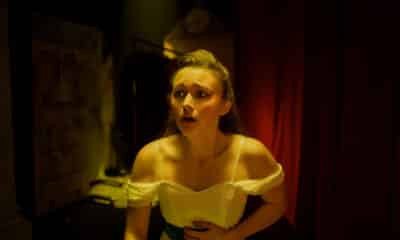

Film Reviews
/ 3 days ago‘Fear Street: Prom Queen’ review: Dir. Matt Palmer (2025)
It has been four years since Leigh Janiak’s Fear Street trilogy took horror fans...
By Kat Hughes -
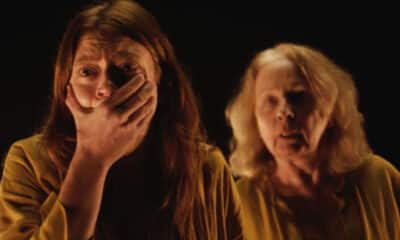

Film Reviews
/ 3 days ago‘The Surrender’ review: Dir. Julia Max (2025)
As Julia Max’s debut feature, The Surrender, unfolds, the inspirations for the film become...
By Kat Hughes -
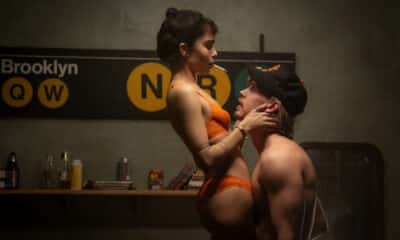

Film Trailers
/ 4 days agoFirst trailer for Darren Aronofsky’s ‘Caught Stealing’
Sony Pictures has released the debut trailer for Darren Aronofsky’s new film Caught Stealing,...
By Paul Heath -
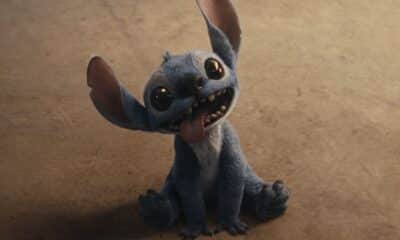

Film Reviews
/ 5 days ago‘Lilo and Stitch’ review: Dir. Dean Fleischer Camp (2025)
Director Dean Fleischer Camp won audiences over with the fantastic Marcel the Shell with...
By Kat Hughes
